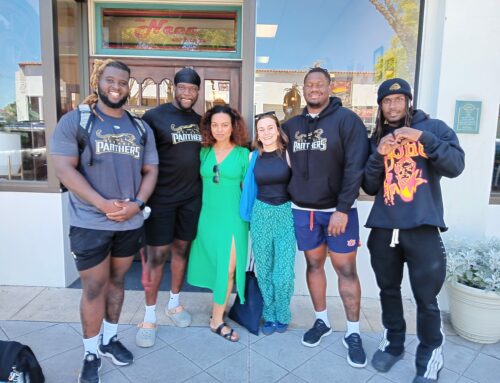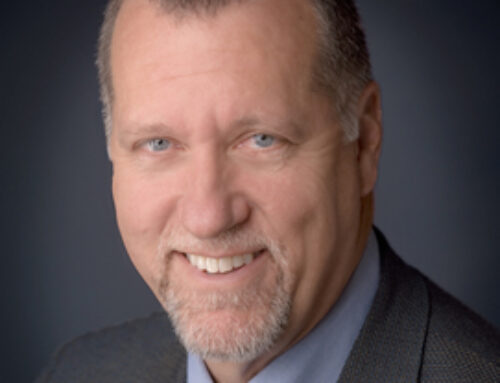“Principled policing is and will remain at the core of our officer training.”

By Shane Palsgrove

Shane Palsgrove
Like many, the members of the Morgan Hill Police Department waited with anticipation for the verdict in the Derek Chauvin trial. The verdict came April 21, guilty on all counts: second degree murder, third degree murder, and manslaughter. The conviction of Derek Chauvin meant accountability for his actions and was a necessary step toward restoring trust in our criminal justice system.
The Morgan Hill Police Department has made repairing trust between police and the communities we serve our top priority. After the death of George Floyd in May 2020, both the city of Morgan Hill and Morgan Hill Police Department held town hall meetings so our residents could share and voice their concerns, and we wanted our community to feel heard. We listened and implemented immediate changes to our policies: we banned the use of the carotid hold, posted our use of force statistics, and use of force policy online for public viewing.
 We are committed to ensuring our officers are adequately trained in crisis intervention, de-escalation, use of force, first aid/CPR/AED’s, and principled policing. Principled policing is and will remain at the core of our officer training. This philosophy unpacks the concepts of procedural justice and presents the concepts of implicit bias to strengthen trust within our community. We will continue to focus on scenario-based training, with an overall emphasis on de-escalation and peer-intervention. This includes ensuring we foster a culture where officers recognize their responsibility and feel safe to intervene and stop excessive force.
We are committed to ensuring our officers are adequately trained in crisis intervention, de-escalation, use of force, first aid/CPR/AED’s, and principled policing. Principled policing is and will remain at the core of our officer training. This philosophy unpacks the concepts of procedural justice and presents the concepts of implicit bias to strengthen trust within our community. We will continue to focus on scenario-based training, with an overall emphasis on de-escalation and peer-intervention. This includes ensuring we foster a culture where officers recognize their responsibility and feel safe to intervene and stop excessive force.
In addition to our training, we have begun to implement two new programs within the police department — the Mobile Crisis Response Team and our Psychiatric Emergency Response Team. Both teams are comprised of mental health clinicians and are in partnership with the Santa Clara County Behavioral Health Department. Members of these teams proactively connect those struggling with mental health challenges to vital services with the goal of de-escalating conflicts between patients and law enforcement, providing safe and timely options, and reducing recidivism among those with mental illness and substance abuse challenges.
 Today’s youth are the future of tomorrow, and we must continue to invest in our youth. We recognize the value of School Resource Officers and our Youth Diversion Program to help our department do just that. In partnership with many local service providers, our Youth Diversion Program aids us in diverting youth away from the criminal justice system and toward local services such as counseling, education, and job training. Studies show an effective youth diversion program lowers the rate of recidivism and reduces the rate of youth dropping out of high school. Our Youth Diversion Program works collaboratively with our School Resource Officer, the Morgan Hill Unified School District, and local service providers to implement best practices to guide and support youth while holding them accountable for their actions to address their behaviors outside of the court system.
Today’s youth are the future of tomorrow, and we must continue to invest in our youth. We recognize the value of School Resource Officers and our Youth Diversion Program to help our department do just that. In partnership with many local service providers, our Youth Diversion Program aids us in diverting youth away from the criminal justice system and toward local services such as counseling, education, and job training. Studies show an effective youth diversion program lowers the rate of recidivism and reduces the rate of youth dropping out of high school. Our Youth Diversion Program works collaboratively with our School Resource Officer, the Morgan Hill Unified School District, and local service providers to implement best practices to guide and support youth while holding them accountable for their actions to address their behaviors outside of the court system.
Our department is also exploring new equipment and technology that provide law enforcement with safe, non-lethal options and the ability to safely de-escalate situations from afar.
Our growth as a department is contingent upon open and honest communication, and as such, we strive to be transparent, active, and effective listeners. We strive to foster and maintain open lines of communication with the community we serve. In the days, months, and years to come, our goal is to build, repair, and improve our relationships and trust with the communities in Morgan Hill so all residents feel safe and protected.
Shane Palsgrove is the Morgan Hill police chief. He wrote this for Morgan Hill Life.






